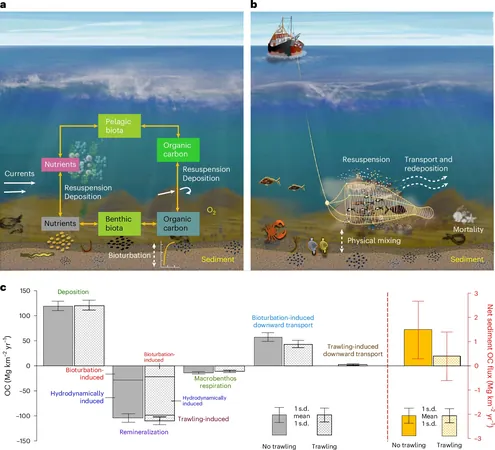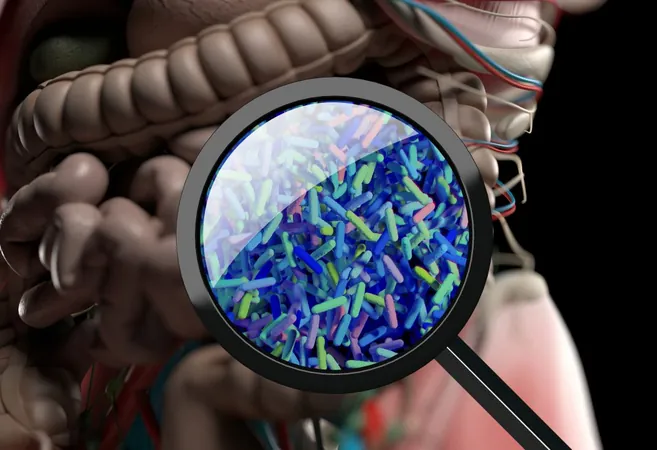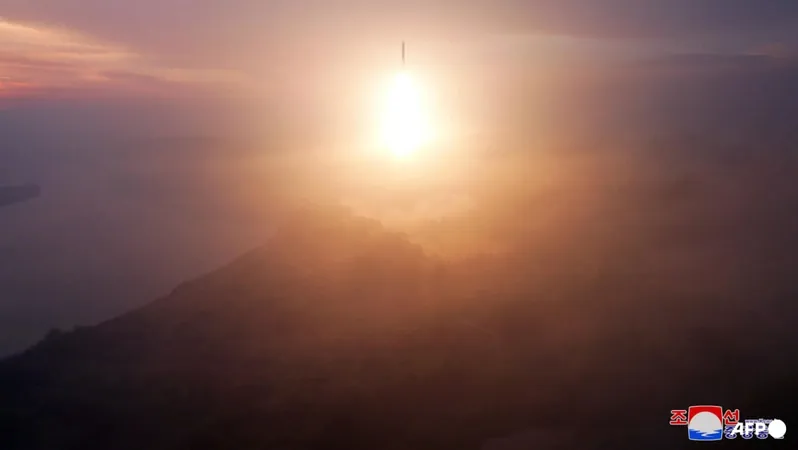
Shocking Discovery: Intensive Bottom Trawling Linked to Skyrocketing Carbon Emissions!
2024-10-29
Author: Wei Ling
Groundbreaking Research Unveils Alarming Connection
Recent groundbreaking research from the Helmholtz-Zentrum Hereon has unveiled a startling connection between intensive fishing practices—specifically bottom trawling in the North Sea—and the release of significant amounts of carbon into our atmosphere. This study highlights an alarming trend: our seas, which typically act as vital carbon sinks, are being compromised by aggressive fishing methods, leading to heightened carbon emissions and contributing to climate change.
Collaborative Efforts in Research
The findings stem from the collaborative APOC project, which includes prestigious research bodies such as the Alfred Wegener Institute Helmholtz Center for Polar and Marine Research (AWI), GEOMAR Helmholtz Center for Ocean Research Kiel, and the German Federation for the Environment and Nature Conservation (BUND). With the analysis of over 2,300 sediment samples from the North Sea, researchers have shed light on the detrimental impact of bottom trawling on carbon storage capabilities in marine environments.
Significant Findings
Dr. Wenyan Zhang, the lead author of the study, emphasized, “Our findings indicate that areas subjected to intense fishing exhibit lower organic carbon levels when compared to less disturbed regions. This degradation is directly attributable to the practice of bottom trawling.” The research represents a significant advancement in understanding the regional and global implications of bottom trawling on carbon dynamics.
Mechanism of Carbon Release
The science is alarming: while the seabed is designed to sequester carbon, bottom trawls disturb sediments, damaging habitats, and releasing bound carbon back into the water column. As organic material is stirred up, it not only contributes to a reduction in carbon storage but also becomes food for microorganisms, which convert it to carbon dioxide. Estimates reveal that trawling activities in the North Sea alone are responsible for releasing approximately 1 million tons of CO2 annually—an alarming fraction of a projected 30 million tons globally.
Impact on Marine Biodiversity
What’s more, the study shines a spotlight on the vulnerability of soft, muddy seabeds, which are particularly affected by these fishing methods. As habitats are destroyed, both flora and fauna suffer, exacerbating the emission of greenhouse gases and posing a severe threat to marine biodiversity.
Call for Urgent Action
In light of these revelations, scientists are calling for urgent protective measures for deep-sea environments, especially muddy habitats that have previously been overlooked in marine conservation strategies. Dr. Zhang insists that new findings and methodologies should guide marine spatial planning policies, emphasizing the need to limit or halt bottom trawling in ecologically sensitive areas.
A Crucial Reminder
As the climate crisis escalates, this research serves as a crucial reminder of the environmental costs of modern fishing practices. It’s time for policymakers to take action—can we afford to ignore the link between our eating habits and the health of our planet? The call for better protection of our oceans has never been clearer. Will we heed it before it's too late?




 Brasil (PT)
Brasil (PT)
 Canada (EN)
Canada (EN)
 Chile (ES)
Chile (ES)
 España (ES)
España (ES)
 France (FR)
France (FR)
 Hong Kong (EN)
Hong Kong (EN)
 Italia (IT)
Italia (IT)
 日本 (JA)
日本 (JA)
 Magyarország (HU)
Magyarország (HU)
 Norge (NO)
Norge (NO)
 Polska (PL)
Polska (PL)
 Schweiz (DE)
Schweiz (DE)
 Singapore (EN)
Singapore (EN)
 Sverige (SV)
Sverige (SV)
 Suomi (FI)
Suomi (FI)
 Türkiye (TR)
Türkiye (TR)